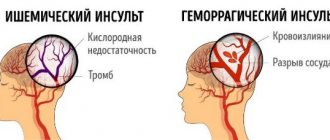July 23, 2021 Useful tips, Business psychology
Falling into a state of despair is not just an unfortunate accident of our lives, it is the right of every person. The right to natural emotions, the right to weakness, the right to accept outside help or stop what you’re doing and be alone. A few months ago on Facebook, my followers and I talked about how differently everyone goes through this condition: someone begins to fight despair and wins (or not), someone is afraid of it and seeks to deny it, someone humbly accepts it. Opinions were divided, and a heap of living examples gathered. We have compiled something like a cheat sheet for you, which you can look at when your strength is leaving you, and it seems that there is no light.
How do you feel when things don't work out? It’s not just that it doesn’t work out, but when all your actions are correct, thoughtful, planned, proven effective, from which you expect a “wow!” effect, but the result is zero. Not a drop, not a teaspoon - exactly zero.
Sometimes, even with a fairly sound mind and sober way of thinking, such a trip is enough to plunge into despair.
How do we feel when we despair?
- Depreciation
All past experience ceases to matter.
At these moments I fall apart in half. The brain is capable of bringing up a variety of arguments and proposing plan A, B, and how much more is needed to overcome the crisis. But there is always a small part of me that squeezes into my knees and shoulders, covers my head with my paws and thinks one thought: “everything is lost.”
In this state, we tend to cross out everything, burn all our bridges.
First I check that I did everything correctly. I did. Then I freak out and think about going to work as a shawarma seller.
- Lost
We don’t understand where we are, the foundation disappears, the basis on which we can rely.
If something goes wrong, if I do a lot and the result is zero, then for some time I row by inertia, telling myself that everything is about to turn out the way I imagined. And then I realize that “just about” hasn’t happened for a long time, and I turn into moral dust. At these moments I don’t think anything good either about myself or about the future.
- Brokenness
Despair also affects your well-being. Fatigue comes from nowhere, and you may suddenly get sick. This is psychosomatics.
- No future
It is very difficult to make plans and hope for something when everything is falling out of your hands and the ground is crumbling under your feet.
My despair is always tragic. It goes beyond business and extends to life, which becomes meaningless and unnecessary, despite high spiritual teachings and the acceptance that it is all just a game of the ego.
- Panic
For those who are accustomed to regular victories, it is especially difficult to come to terms with despair - chaotic actions begin on the principle of “doing at least something, just don’t stop.”
I begin to ask myself questions, torment, analyze and engage in other types of masochism.
- Loneliness
We are not used to being weak, and showing that we are desperate, it seems inconvenient to us. Most often, people despair when they are alone.
Each of us thinks that he is the only one. The rest are all so positive and successful, and I’m a toy terrier!) But we gathered here and said that there are many of us, we are like this, and this does not stop us from being cool in what we do!
- Humility
We allow despair to take over all our thoughts and time, we fall into it completely and stew in it.
I’m terribly despairing, and I’m going into a deep, deep minus, that I don’t know how and can’t do anything, and I don’t have a profession, and there’s nothing, and everything is bad in all areas.
Seasonal depression
The reason for the autumn blues is clear: sunny days are shortening, the air temperature is dropping - hence drowsiness, worsening mood and lack of energy. But “autumn depression” is not just melancholy. It cannot be cured by watching comedy series.
Experts use the term “seasonal affective (depressive) disorder.” Symptoms are similar to regular depression: loss of interest, irritability, poor concentration, changes in sleep patterns and appetite. More often than with other types of depression, overeating and excessive sleep occur.
Seasonal affective disorder occurs in the fall or winter. This diagnosis can be made if symptoms are observed at least twice during the cold season and not at any other time for two years or more.
While figuring out how to get rid of the autumn blues and depression, scientists suggested that the disorder is caused by a decrease in the level of sunlight. This affects the hypothalamus, which helps with the functioning of the nervous and endocrine systems.
Seasonal disorder also causes the brain to produce increased amounts of melatonin, a hormone that controls sleep-wake cycles. This leads to sleep problems, unexplained fatigue and apathy. At the same time, decreased levels of sunlight cause a decrease in the production of serotonin, which affects our mood, appetite and sleep.
How to cope with autumn depression? Doctors advise getting as much sunlight as possible during the day: going outside more often, sitting near windows and in well-lit rooms.
When thinking about how to get rid of autumn depression, you should make sure that it is not associated with stress, somatic causes or heredity. This can be clarified at an appointment with a specialist.
Where does despair come from?
Recognizing the problem and understanding its nature is almost half of the solution. During the discussion, we found out that despair and its accompanying conditions have specific causes. Everyone has their own, but knowing them, you can carry out prevention and, at a minimum, not be surprised at the moment of despair. So why do we despair?
- Little experience
When we are just at the start of a project, there are still a lot of rosy expectations, which often have nothing to do with reality. Beginning freelancers and entrepreneurs despair much more and more often. If you process these moments correctly, a natural reaction is formed that helps you cope.
- Little real response to activity
Experts whose activities involve working online, remote consultants, and, perhaps, all freelancers, have to go through a period at the beginning of their journey when it is not clear how the end user feels about your work.
You do something, you do it, and you don’t have the slightest idea what is happening from your actions with others, and whether it is happening at all. And at times you think that everything, nothing worked out, nothing worked out.
- Perfectionism
The refusal to accept halftones, the desire to do only perfectly and not well enough, the desire to be the best in everything has driven many specialists into deep despair who are not accustomed to measuring success in intermediate results.
- Lack of an unshakable base
Interlocutors describe despair as falling into the unknown. We easily give in to the desire to give up and give up everything when we do not have a solid foundation under our feet in our activities.
If possible, every day do at least some small thing (whatever you have enough moral strength to do) for the main task.
- Intolerance
Even if we accept despair, we want everything to start getting better the minute we accept it.
It often turns out that you just had to wait a little - because it was not zero, but a delayed result. Not immediately, but over time. But I already have time to collapse into despair.
Types of depression
There are many classifications of depressive disorders. Some are no longer relevant, some are controversial. We tried to combine the main types of depression into subgroups, which are identified by ICD-10, the World Psychiatric Organization and some researchers (D. Hell, V. A. Torchilov, V. L. Minutko).
By severity
- Light
- difficult to distinguish from sadness and melancholy. The range of symptoms and their severity do not yet allow a clear diagnosis of depressive disorder, but with a high degree of probability a person will experience depression in the future. This condition is also called subdepressive or subsyndromal (minor) depression. - Moderate
- the clinical picture is clear, but the person is able to fully (or almost fully) function in society. - Severe
- pronounced symptoms up to loss of functionality, delusions or hallucinations.
By origin
- Endogenous
- does not depend on external influences, only on internal reasons - for example, due to heredity. - Reactive (exogenous, psychogenic)
- develops under the influence of external stress: death of a loved one, workload, breakup, etc.
It is often difficult to attribute depression only to endogenous or only to reactive - the disorder in most cases is caused by both external and internal factors.
- Primary
- depression is not preceded by other mental illnesses and is not caused by taking any chemical substances. - Secondary
- caused by other disorders and diseases (schizophrenia, alcoholism, brain pathologies) or taking drugs/medicines. Depression caused by somatic (“bodily”) causes is also called somatogenic.
By type of phase flow
- Unipolar (monopolar)
- the depressive state is stable throughout the entire illness. - Bipolar disorder (manic-depressive psychosis)
- the depression phase is periodically replaced by a mania phase - agitation, hyperactivity, elevated mood, outbursts of anger, etc. - Dysthymia
is chronic depressed mood for two or more years without severe symptoms. - Cyclothymia
is a “mild” form of bipolar disorder in which the mood constantly changes from elated and excited to depressed and vice versa. Mood changes are irregular and last several days.
According to seasonality
- Seasonal Affective Disorder
- Occurs depending on the season, usually in the fall or winter. - Non-seasonal disorder
- manifests itself regardless of the time of year.
By leading affect
- Anxious
- anxiety, concern, panic attacks predominate. - Melancholy
- there is a sad, melancholic mood, tearfulness. - Apathetic
- characterized by apathy, lack of interest in anything, dullness of feelings. - Undifferentiated
- it is impossible to single out any of the affects as leading.
By type of disorder in the motor or ideational sphere
- Inhibited (adynamic)
- characterized by impaired concentration, increased fatigue, memory impairment, and cases of inability to move and perform even simple actions. - Agitated
- symptoms include motor restlessness, a feeling of fear, rapid heartbeat, and strong emotional arousal. - Mixed
- combining signs of inhibition and agitation. - Dissociated
- without violations in these areas.
Disorders not included in subgroups
- Adjustment disorder
is an emotional disorder under the influence of severe stress that occurs during the period of adaptation to changes and interferes with a full life. - Atypical depression
- symptoms include specific signs: increased emotional reaction, weight gain, drowsiness, avoidance of interpersonal contacts. - Resistant depression
- refractory to treatment with antidepressants for at least two consecutive courses of 3-4 weeks. - Anxiety-depressive disorder
combines features of anxiety disorder and depression, and it is difficult to single out one as primary. - Postpartum (postnatal) depression.
Diagnosis and treatment of depression
A clinical psychologist, psychotherapist or psychiatrist conducts a conversation with the patient, asks leading questions: how the symptoms manifest themselves, for how long, whether there has been a deterioration or improvement in well-being. Tests and questionnaires can be used for diagnosis. In some cases, the doctor will refer you to other specialists (for example, to a cardiologist if your heart is bothering you) to rule out physical causes of this condition.
Patients with depression are hospitalized in exceptional cases - for example, if there is a real threat of suicide or delusions and hallucinations appear.
The approach to treating depression depends on the cause of its occurrence:
- Depression is endogenous, that is, it does not depend on external circumstances.
The main method of treatment is pharmacotherapy. For anxiety and restlessness, sedative antidepressants are prescribed, and for apathy and melancholy - stimulating drugs. If symptoms of both groups are present, drugs of balanced action are used. - The disorder arose against a background of stress.
It is necessary to work out the causes of stress in psychotherapy. Together with a specialist, you will understand what mechanisms your psyche triggers and how to rebuild them in order to feel better. Such depression can be treated without medication, but if the symptoms are severe and the patient feels unbearable, the doctor may prescribe a course of antidepressants. - Depression is a reaction to somatic illnesses.
It is necessary to treat the root cause of depressive disorder and only then resort to symptomatic pharmacotherapy and psychotherapy.
Antidepressants have side effects: They should be taken only as prescribed by a doctor. If you feel that the drug has a strange effect on your mood and condition, be sure to contact a specialist again - he will adjust the dosage or select another treatment.
Depression in men
Perhaps the low number of reported cases of depression in men is associated with the stigmatization of this disorder in men (stereotypes such as “a man should be strong”, “a man should not worry about problems, but solve them”, etc.). This makes it more difficult for men to understand how to deal with depression and admit to having an emotion-related illness.
In some cases, depression is unconsciously masked by irritability and aggression, immersion in work and career, alcoholism and other addictions.
How to deal with apathy and depression on your own
The best ways to combat depression are psychotherapy and treatment as prescribed by your doctor. However, there are several ways to deal with stress and depression on your own.
Any work, including psychological work, is not easy when you are depressed, but taking care of yourself will significantly speed up recovery.
Record your condition
A person prone to depression is not always able to express his feelings in words. In this regard, problems may arise in communicating with loved ones (when you want to share your problems, but they do not understand you) and in understanding yourself.
An exercise with a 10-point scale will help you understand what happens to you when you are depressed.
Idea taken from Learning Solution-Focused Therapy by Anne Bodmer Lutz.
Draw a line and mark it with divisions from 0 to 10. This will be a scale of your state, where 0 is the worst feeling, and 10 is the best possible feeling, a state of absolute happiness. Assign each division a list of “symptoms,” feelings, and thoughts. You can use metaphors and images that are close to you personally. Here's an example:
When you feel changes in your condition, ask yourself questions:
- How am I feeling now? Where am I now on a scale of 10?
- Is there something that could cause me to move left on the scale? What should I be afraid of? Can I protect myself from this shift?
- Is there anything that will allow me to move up the scale by at least one point? How about two points?
There is a difference between “I feel terrible” and “I feel 2/10 bad.” By rationalizing your condition, you increase the chances of its improvement. The scale will tell you what to do if depression does not go away.
Remember what makes you feel better
If something makes you feel even a little better, write down the reason. You liked the taste of food, listened to a friend, watched a funny video with cats - any event that brought a smile or smoothed out the feeling of pain and emptiness deserves attention. You can record how many points the improvement occurred after each event. Even if it is only one tenth, any positive change is worth recording.
During depressive episodes, you should turn to the list of positive things you have created and try to implement any of them.
Track your needs
Usually when you're depressed you don't want anything. It is all the more important not to miss the moment when the desire to do something does appear. Suddenly felt like you wanted to go for a walk? Go outside. Want to chat with friends? Call them.
If you just want to lie on the couch, allow yourself that too. By coming into conflict with yourself over procrastination, you only waste your internal resources, which are already scarce in depression. Try to put things aside and allow yourself to rest without remorse.
Process destructive thoughts
Depression is characterized by destructive automatic thoughts. These are judgments that arise fleetingly and most often are not based on specific facts (“nobody loves me,” “I’m worthless,” “I’m all alone”). Often a person is not aware of these thoughts, but he feels the emotions that arise as a result of them.
Information and exercise taken from the book “Mood Management. Methods and exercises” by D. Greenberger and K. Padesky.
According to cognitive behavioral therapy, you can learn to catch such thoughts and reduce the intensity of negative emotions. The easiest way to do this is using a table.
- When you feel a strong emotion, write it down and rate the intensity on a scale of 100. If you can’t determine what these feelings are, find a list of emotions on the Internet and listen to yourself, going through the concepts: which word resonates with you more strongly than others?
- Write down the situation in which this emotion arose. Where were you at this moment? Was there anyone else nearby?
- Try to isolate the thought (or several thoughts) that led you to the emotion.
- Try to use cold calculation: write down objective evidence that supports this idea, and facts that contradict it.
- Based on contradictory facts, formulate a new thought, more balanced and thoughtful. Rate how confident you are in her.
- Rate the intensity of the original emotion after formulating an alternative thought. Has the emotion weakened? Has it become easier?
Try to confirm your thoughts in practice, conduct experiments. If you feel like no one loves you, conduct a survey among your friends and family and write down the results. If you are afraid that you are performing poorly and will soon be fired, ask for feedback from your superiors. By receiving “applied” confirmation of alternative thoughts, the brain consolidates the new experience as positive, and the intensity of previous negative feelings decreases.
It is unlikely that after completing the exercise you will stop experiencing negative emotions. Perhaps their intensity will decrease by only 5–10 points out of 100 or not at all. But by filling out the table every day for several months, you will learn to replace destructive thoughts with more thoughtful ones and manage your feelings.
Here is a table with an example typical for a depressive state:
| Situation What happened? When, where, under what circumstances? | Saturday, 21:00. I'm home alone. |
| Emotions What did I feel? How intense are these emotions on a scale of 100? | Depression (100). Disappointment (90). Despair (90). |
| Automatic thoughts (images) What arose in my mind before the emotion arose? | I want to turn to stone so that I don't feel anything anymore. Life is not worth living. |
| Arguments for the Truth of Automatic Thought | My condition has not improved for several weeks. I try to force myself to do something, but nothing helps. |
| Arguments against the truth of automatic thought | I have experienced acute mental pain before, but somehow I dealt with it. Sometimes I feel lighter and don't feel as desperate. Sometimes I smile or laugh. I am learning to think differently and fill out this table, taking care of my condition. |
| Alternative/Considerated Thoughts Write down alternative or more balanced thoughts based on the arguments above. Rate your confidence in each of them on a 100-point scale. | It is important to realize that the feeling of unbearability of what is happening will definitely pass and your mood will soon improve (60). I am learning skills that will allow me to understand how to get out of depression (30). Suicide is not the only option (20). |
| Reassessing Emotions After becoming aware of alternative thoughts, rate on a 100-point scale the intensity of the feelings recorded earlier. Write down and evaluate new emotions if they appear. | Depression (80). Disappointment (75). Despair (70). |
Don't be shy to ask for support
The idea of asking for help is often accompanied by fear: what if the person refuses, laughs, or devalues the experience? Therefore, when dealing with depression, it is important to protect yourself and ask for support correctly.
- Try to determine what support is needed.
For some, these are supportive words (and you should immediately determine which ones), for others - a hug, joint leisure, just being nearby. - Identify people you can reach out to.
People whom we consider close are not always ready to provide support. Analyze your experience of communicating with a person: were there any cases when he ignored you or joked inappropriately? If yes, don't risk it. At the same time, it is not necessary to ask for support from relatives or close friends. Strangers, friends or colleagues can also support (pat you on the shoulder, listen, say kind words). - Request support.
People don’t know how to read minds, they may not know that you are feeling bad right now, and they may not understand what kind of support you need. Also, a person may be busy or immersed in his own experiences, so it is important to clearly formulate the request without pushing personal boundaries. For example: “I feel bad now and want to talk, can you listen to me, please?”
If asking for help is scary and uncomfortable, ask yourself: would I support this person if he turned to me? If yes, then why shouldn’t he support you?










